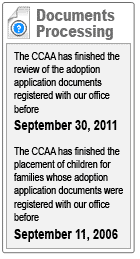Spitgirl here. The system I was hoping to work on tonight (pB, one of my hobbies) decided to be down, so I decided to be productive and write something - anything - that popped into my head. But my head decided to be serious (even after reading the Christmas card thing), so here is a brief treatise on yet another cultural difference.
As some of you probably read in my introduction, I am a Chinese American, raised by parents who were in turn raised in a Chinese culture (in Taiwan). There are a number of things I have had to reconcile within myself, such as conflicting cultural values.
Here in the United States (and, dare I say it, in most modern western civilization), the focus is on the individual. My father used to say to me, "You have to take care of Number One!" (He always said this in English, for some reason - never in Chinese.) But seriously, the prevalent focus today is on the individual person. What can one vote do? Who am I? Why do I exist? How can I further myself? How does this make me feel?
Granted, people rarely go into the extremity of this side of the spectrum - narcissism and self-absorption - but in some ways we are raised to be self-reliant, self-aware, and self-sustaining members of society. We take pride in being able to pay our own taxes, our own mortgages, value independence, succeed in our jobs and climb the corporate ladder, are responsible for our own actions, and seek to define ourselves - often on our own terms.
Some of these values are intrinsic in our society, woven so subtly that it affects our daily intractions, defines our struggles, and helps us to identify our place in the world. "It's a dog-eat-dog world." "Here I go to join the rat race."
Although my parents taught me to be independent, there was also an unstated belief that was passed along, one that was instilled in me on such a fundamental level that I find it difficult to express at times. This is the concept of the greater whole, the body of people to which I belong. My family. People who look like me. People of my heritage. And I heard reverent stories of people who sacrificed it all for the sake of this greater whole, this greater unit.
Family is the greatest unit, the most close-knit one. You hear often about multiple generations of families living together, each sacrificing their independent for the sake of being together. Kids being raised by their grandparents while their parents work two jobs a piece. Children working in the family business so they won't have to hire a person who needs to be paid more. Family takes care of family, no matter what. Kids are sent to live with aunts and uncles in the United States on an F-1 visa because it gives them a better chance at surviving schooling. Parents work three jobs to make sure that their kids can go to a good school. Kids study to the to be able to meet their parents' expectations to honor the sacrifice.
We can take it to the next level - inclusion. One of the things about my college church fellowship that seemed so natural (but actually would probably drive most crazy) is the time afterwards, where people are starting to leave. Well, we didn't really leave - we needed to touch base with everyone else and had to say good-bye to everyone before we left. Going out to eat afterwards was a huge ordeal - it would take us half an hour just to make sure everyone was okay with where we were going and start going in that direction. (Yes, decisions are made by consensus - always.)
We rely on one another in various ways. You have excess fruit from your yard? Give it to a friend, and when their crop comes in, they'll give you theirs. My mom makes extra pies and breads to give to their friends and neighbors, and we always have fruits and vegetables "from a friend's yard." There's always a special deal for family - and even friends of family. I got my first apartment at college through the Asian network (mom's friend knew a friend knew the woman who owned the complex), got my latest car for $500 under invoice (INVOICE, mind you, not list) because of the Asian network (brother's friend's former coworker who moved to this dealership). The right hand scratches the left, and a favor down the line will be returned.
Don't even get me started about Asian time (about 30 minutes late), which my friend Bem calls "colored people time" (because he's African American). It drives my (totally cute and totally on-time) Caucasian boyfriend absolutely nuts.
(I know it's getting late, because I'm starting to get a little incoherent.)
The conflict was this: how does one take the values of one culture (one over many) and reconcile it with the other (many over one)? Some of the decisions I make about the way I spend time, money, and resources are completely culturally based. My boyfriend keeps on insisting I don't have to bring anything over to his parents' (or his friends') houses when I stay there, but I am culturally compelled to bring something, even for crash space. Last year, I sent Christmas gifts to his parents and grandparents, even though we'd only been going out for a month, because it was Just Something You Did (tm). They were impressed, but I don't think a Chinese family would have been impressed - they would have just thought it polite. My dad said, "Of course they were impressed! Caucasian people don't raise their kids to do that. We raised you Asian."
My boyfriend brought a nice porcelain bowl full of oranges (well, tangelos) the first time he met my parents because I told him it was expected from a cultural standpoint, even if my parents would have cut him slack because he wouldn't have known anything about it. I don't know if he would have brought anything otherwise.
I should say here that there is a spectrum where people lie, because many people aren't just one side or another. I know that Rhonda's Jewish heritage has a lot in common with Chinese cultural mores of family, blood lines, and intergenerational honor and respect. Different families fall on different parts on this spectrum. Okay, enough of the caveat.
I think the defining moment I had in this struggle was reading a little book I got before I went on a missions trip to Brazil. It was a small book on cultural differences that talked about "Hot Temperature Cultures" and "Cold Temperature Cultures." Hot weather cultures, this woman wrote, included much of Africa, the Middle East, South America, South and East Asia (with the exception, I think, of Japan), and, yes, the South in the United States. These cultures, she writes, generally have values of relationships and of this concept of a group need and group desire being of higher value than one's own desires.
The rest of the world, it seems, has different values - those of independence, speaking up your mind, your own need (to get somewhere, for instance) to supercede the relationship (someone you were talking to) instead of the other way around. Time is of great import to the person of the cold temperature culture, and a disrespect for timeliness is often considered a disrespect to the person.
I didn't realize how bicultural I was, able to context switch between one and the other, until I went to Brazil for three weeks. I speak fluent Brazilian Portuguese (well, I did after a week or so of refreshing my memory and being in a homestay situation) and was able to communicate quite naturally with the people there. One day near the end of the second week, we were standing around in a group and the pastor asked me if I hit any culture shock.
"Why, no," I replied, after thinking a bit. I think the only thing I had really thought was different was the toilets - not being able to put the toilet paper into the toilet just seemed wrong, for some reason. But the people? Fine. Interactions? Fine. Cultural assumptions? Fine. Houses? Reminded me of the ones my grandparents lived in while they were still in Taiwan. Food? Different, but delicious.
I went on to attribute my ease of transition to my bicultural roots - the ability to switch from the independent Western woman to the group-minded Eastern.
It didn't strike me that this flippant response was probably the reason why until later, when I talked to someone who had come on the same trip from Sweden. She had gone to an American school and spoke English pretty much natively. "Oh my goodness!" she exclaimed when I asked her the question. "YES, I hit major culture shock!" She didn't have the advantage of the hot temperature culture background, and so some of the cultural assumptions they made, about what might make her feel comfortable and how to include her, only further alienated her.
Until that moment, I never realized that Brazilian culture and Chinese culture had so much in common. (On a complete side note, I once started a notebook about culture in the US, and wrote about some of my struggles as an Asian American. I passed this on to a random friend of mine who is second generation African immigrant, and he told me later, "I never realized we had so much in common! Some of the things you said, *I* went through!")
What is the application here? I think for many of you future parents, this won't even be applicable. This might only be an issue with second generation immigrants, those of us who are raised in a specific cultural context that conflicts with mainstream culture. Perhaps those who are adopting older children may have to deal with this cultural programming and help their children sort it out when they are older. Perhaps you might use some of the little examples as ways to connect your children to their birth heritage. Maybe it's just late, so I'm rambling. I guess I just wanted to point out that sometimes cultural differences are so fundamental, they're almost alien. This is something that I will personally continue to struggle with, both in myself as well as in my cross-cultural relationship.
Until then, I'll continue to work it out.
Friday, December 15, 2006
Subscribe to:
Post Comments (Atom)




















3 comments:
Awesome post. Thanks for your insight.
Thanks for sharing!
Wow, a very powerful post. Thanks for sharing your thoughts.
Post a Comment